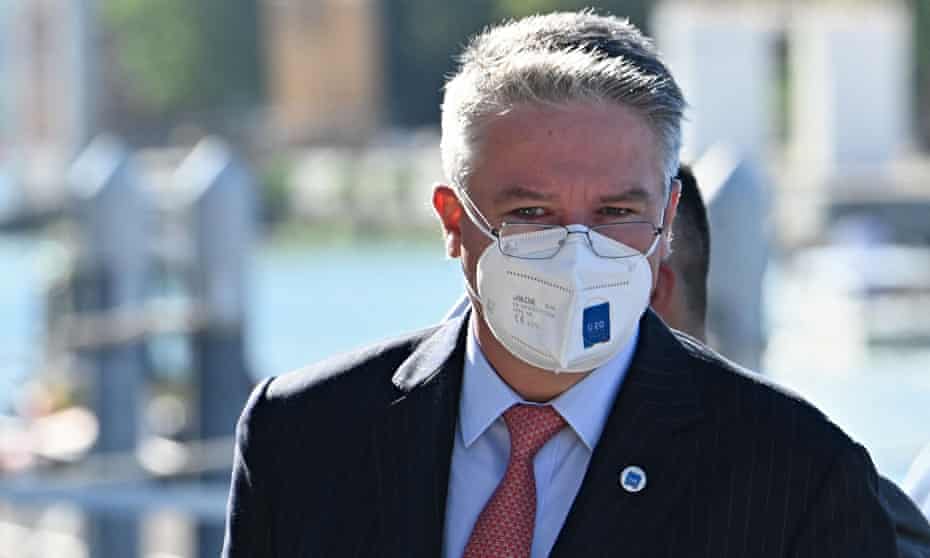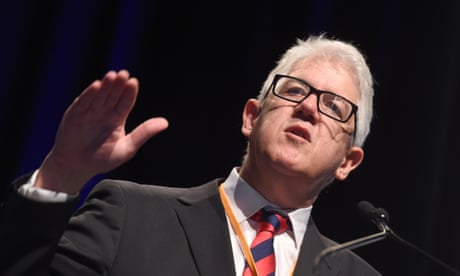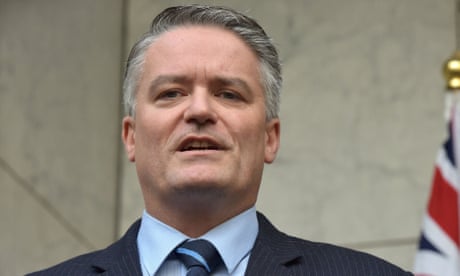Extract from The Guardian
Mathias Cormann, now head of the OECD, was instrumental in repealing the nation’s key climate policy in 2014.

Last modified on Thu 28 Oct 2021 20.28 AEDT
Mathias Cormann, the former Australian finance minister and Senate leader, is calling for Australia to adopt a carbon price despite spending years in government fighting against the idea.
Cormann, who is now general secretary of the Organisation for Economic Co-operation and Development, is spearheading the charge for G20 economies to “lift their ambition” in the global push to meet a net zero by 2050 target, by putting a price on pollution.
In a new report released by the OECD that tracks the progress of carbon pricing in G20 economies, Cormann points to “uneven” progress among developed economies and calls for more global coordination on carbon pricing.
“Carbon prices and equivalent measures need to become significantly more stringent, and globally better coordinated, to properly reflect the cost of emissions to the planet and put us on the path to genuinely meet the Paris Agreement climate goals,” Cormann said.

“We need a globally more coherent approach which enables countries to lift their ambition and effort to the level required to meet global net zero by 2050, with every country carrying an appropriate and fair share of the burden while avoiding carbon leakage and trade distortions.”
The report, Carbon Pricing in Times of COVID-19: What has changed in G20 economies? finds that G20 economies priced 49% of CO2 emissions from energy use in 2021, up from 37% in 2018.
The
increase was attributed to new emissions trading systems in Canada,
China and Germany, new carbon levies in Canada, and a new carbon tax in
South Africa and Mexico.
According to its report on Australia, a total of just 22.4% of CO2 emissions from energy use in Australia are priced in 2021, “unchanged since 2018”.
“Australia does not levy an explicit carbon price. Fuel excise taxes, an implicit form of carbon pricing, cover 22.4% of emissions in 2021,” the report says.
“Emissions are unpriced in electricity, industry and agriculture and fisheries. Together, these sectors account for 71.1% of CO2 emissions from energy use in Australia.”
By comparison, Korea has 97% of its emissions priced, Canada 88%, and the UK, 68.3%.
The OECD’s report on carbon pricing in G20 economies, which account for 80% of global emissions, will be presented during the Cop26 climate summit next week where the Australian prime minister, Scott Morrison, will outline the country’s plan to achieve net zero emissions by 2050.
It suggests 30% of its emission reduction task will be achieved through global technology “trends” and “further technology breakthroughs”.
Morrison has argued that investing in technology will allow Australia to reach the 2050 goal without any other policy changes, and has dismissed any price signal that could incentivise investment in renewable energy as a “carbon tax”.
“I can tell Australians very clearly that if you don’t think technology can do this and you’re not confident about that, and it seems the Labor Party is not, they have two other options. They’ll tax you and they’ll regulate you and force your decisions,” Morrison said on Thursday.
“Now, that’s not our plan. That’s not the Australian way. That clearly seems to be the path they’re heading down. That’s a matter for them. Other countries will make their decisions. We’ll make Australian decisions, in Australia for Australia’s interests, and that’s what I’ll be saying in Glasgow.”
Cormann, who was the finance minister under Tony Abbott, Malcolm Turnbull and Morrison, was a vocal opponent of Labor’s climate policies and was instrumental in repealing Australia’s carbon price in 2014 which had driven cuts in Australia’s emissions.

He was also part of the Abbott government’s push to try to abolish the Clean Energy Finance Corporation and the Australian Renewable Energy Agency.
In 2011, Cormann characterised a carbon tax on Twitter as “not effective action on climate change” and “an act of economic self-harm which does nothing to help global emissions”, while in 2016, he said Australia’s economy was “in better shape because we scrapped Labor’s carbon and mining taxes and implemented our plans for jobs and growth”.
Cormann has previously told the Guardian that “different countries will have different means of contributing to the global emissions reduction effort”.
“Australia, for example, is in a prime position to export clean energy to the world, for example through the development of a world-leading hydrogen industry,” he said in February.
No comments:
Post a Comment